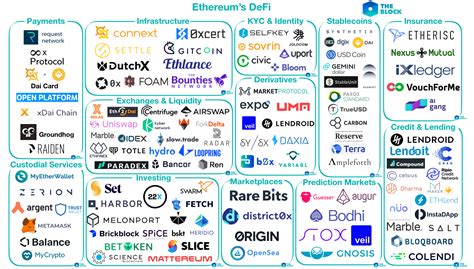Can a Wallet Deny Payments to It: Understanding the Ethereum Consensus Mechanism
In the world of cryptocurrency and blockchain, wallets play a crucial role in facilitating transactions between parties. Once your public wallet address is known, you can deny payments to that wallet by implementing various mechanisms. In this article, we'll delve into how wallets can deny payments and explore if external authorities can regulate who can pay into a wallet.
Wallets as Payment Gateways
Wallets act as intermediaries between users and the Ethereum network. They store private keys, public addresses, and transaction history, allowing users to send and receive cryptocurrencies. When you create a new wallet or transfer funds, your public address is linked to a specific Ethereum account, which can be controlled by you.
Denying Payments: Methods and Approaches
Wallets can deny payments in several ways:
Private key protection: You can protect your private keys using advanced security measures, such as homomorphic encryption, key wrapping, or multi-signature wallets.
Wallet segmentation: You can split your wallet into multiple segments, each controlled by a different user or group of users. This approach allows you to limit access to specific funds or accounts.
Wallet locks and restrictions: Some wallets offer features like lock-out periods, IP blocking, or wallet freeze, which can temporarily disable or restrict access to the wallet.
External Authorities: Regulating Payments
While external authorities cannot directly regulate payments from your public wallet address, they can implement various mechanisms to control transactions:
Smart contract-based solutions: Some Ethereum-based smart contracts, like the OpenZeppelin Wallet, allow users to specify payment rules and restrictions for their wallets.
Wallet permissions: Users can grant specific permissions to external authorities, such as allowing them to access only certain funds or accounts within your wallet.
Tokenized governance: Blockchain-based systems like DAOs (Decentralized Autonomous Organizations) enable decentralized governance and permission management, where users can vote on proposals that affect their wallets.
Ethereum 2.0: A New Era of Payment Regulation
The upcoming Ethereum 2.0 upgrade promises significant improvements to the blockchain's scalability and security. Some potential features include:
Slip-jams and smart contract optimization: These upgrades aim to reduce transaction fees and improve wallet performance.
Layer 2 scaling solutions
: Ethereum 2.0 will introduce second-layer scaling protocols, like Optimism and Arbitrum, which can further optimize transactions and limit wallet access.
Conclusion
In conclusion, wallets have various methods to deny payments from your public address. Advanced security measures, segmentation, and permission-based controls allow users to manage their funds effectively. External authorities can implement smart contract-based solutions, tokenized governance, and other mechanisms to regulate payments from a wallet.
While external authorities cannot directly control transactions from a wallet, they can influence the ecosystem through various means, such as:
Regulating smart contracts: By implementing strict smart contract rules and restrictions, external authorities can limit wallet access and transaction fees.
Enforcing wallet permissions: Users can grant specific permissions to external authorities, allowing them to review and approve transactions on behalf of their wallets.
As Ethereum 2.0 continues to improve the blockchain's security and scalability, it will be exciting to see how external authorities adapt and implement new mechanisms to regulate payments from wallets.